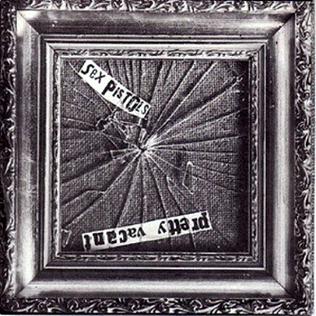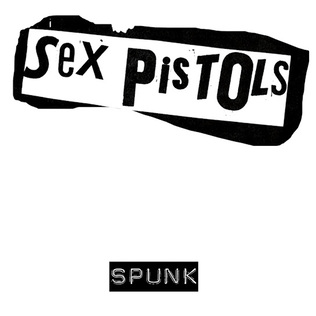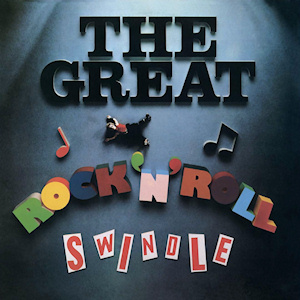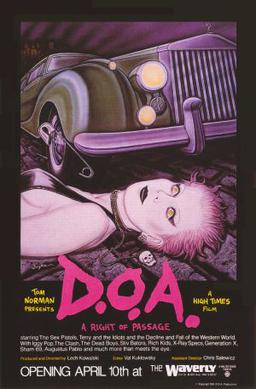Related Research Articles

The Sex Pistols were an English punk rock band formed in London in 1975. Although their initial career lasted just two and a half years, they were one of the most culturally influential acts in popular music. The band initiated the punk movement in the United Kingdom and inspired many later punk and alternative rock musicians, while their clothing and hairstyles were a significant influence on punk image.

Richard Hell and the Voidoids were an American punk rock band, formed in New York City in 1976 and fronted by Richard Hell, a former member of the Neon Boys, Television and the Heartbreakers.

Public Image Ltd are an English post-punk band formed by lead vocalist John Lydon, guitarist Keith Levene, bassist Jah Wobble, and drummer Jim Walker in May 1978. The group's line-up has changed frequently over the years; Lydon has been the sole constant member.

Malcolm Robert Andrew McLaren was an English impresario, visual artist, singer, songwriter, musician, clothes designer and boutique owner, who combined these activities in an inventive and provocative way. He promoted and managed the bands New York Dolls, the Sex Pistols, and Bow Wow Wow, and recorded music in his own name.

John Simon Ritchie, better known by his stage name Sid Vicious, was an English musician, best known as the bassist for the punk rock band Sex Pistols. Despite dying in 1979 at age 21, he remains an icon of the punk subculture; one of his friends noted that he embodied "everything in punk that was dark, decadent and nihilistic."

Glen Matlock is an English musician, best known for being the bass guitarist in the original line-up of the punk rock band the Sex Pistols. He is credited as a songwriter on 10 of the 12 songs on the Sex Pistols' only album, Never Mind the Bollocks, Here's the Sex Pistols, although he had left the band early in the recording process, credited as bassist and backing vocalist on only two songs on the album, "Anarchy in the U.K." and "God Save The Queen".

Never Mind the Bollocks, Here's the Sex Pistols is the only studio album by English punk rock band the Sex Pistols, released on 28 October 1977 by Virgin Records in the UK and on 11 November 1977 by Warner Bros. Records in the US. The album has influenced many bands and musicians, and the industry in general. In particular, the album's raw energy, and Johnny Rotten's sneering delivery and "half-singing", are often considered game-changing. It is frequently listed as the most influential punk album, and one of the greatest and most important albums of all time.

Sid and Nancy is a 1986 British biographical film directed by Alex Cox, co-written with Abbe Wool, and starring Gary Oldman and Chloe Webb. The film portrays the life of Sid Vicious, bassist of the punk rock band the Sex Pistols, and his destructive relationship with girlfriend Nancy Spungen. The film also features supporting performances from David Hayman, Xander Berkeley, and Courtney Love.

"Anarchy in the U.K." is a song by English punk rock band the Sex Pistols. It was released as the band's debut single on 26 November 1976 and was later featured on their album Never Mind the Bollocks, Here's the Sex Pistols. "Anarchy in the U.K." was number 56 on Rolling Stone magazine's list of the 500 Greatest Songs of All Time and is included in the Rock and Roll Hall of Fame's 500 Songs That Shaped Rock and Roll.

The Great Rock 'n' Roll Swindle is a 1980 British mockumentary film directed by Julien Temple and produced by Don Boyd and Jeremy Thomas. It centres on the British punk rock band Sex Pistols and, most prominently, their manager Malcolm McLaren.

"Pretty Vacant" is a song by the English punk rock band the Sex Pistols. It was released on 2 July 1977 as the band's third single and was later featured on their only album, Never Mind the Bollocks, Here's the Sex Pistols, released during that same year. It is the first song written by the band.
Sex was a boutique run by Vivienne Westwood and her then partner Malcolm McLaren at 430 King's Road, London between 1974 and 1976. It specialised in clothing that defined the look of the punk movement.

Warwick Alan "Wally" Nightingale was an English guitarist. He founded the band that went on to become the Sex Pistols.
Bernard Rhodes is a designer, band manager, studio owner, record producer and songwriter who was integral to the development of the punk rock scene in the United Kingdom from the middle 1970s. He is most associated with two of the UK's best known and influential punk bands, the Sex Pistols and The Clash. Rhodes was responsible for discovering John Lydon and arranging his audition in the King's Road which led to Lydon joining the Sex Pistols. He introduced Joe Strummer to Mick Jones and Paul Simonon, who with Keith Levene then formed The Clash.

Spunk is a bootleg demo album by the English punk rock band The Sex Pistols. It was originally released in the United Kingdom during September or October 1977.

The Great Rock 'n' Roll Swindle is the soundtrack album of the film of the same name by the Sex Pistols.

D.O.A.: A Right of Passage is a 1980 rockumentary film directed by Lech Kowalski about the origin of punk rock. The rockumentary takes interview and concert footage of some of punk rock's earliest bands of the late seventies scene. Features live performances by the Sex Pistols, The Dead Boys, Generation X, The Rich Kids, X-Ray Spex, and Sham 69, with additional music from The Clash, Iggy Pop, and Augustus Pablo.

John Joseph Lydon, also known by his former stage name Johnny Rotten, is a British singer-songwriter. He was the lead singer of the punk band the Sex Pistols, which was active from 1975 to 1978, and again for various revivals during the 1990s and 2000s. He is also the lead singer of post-punk band Public Image Ltd (PiL), which he founded and fronted from 1978 until 1993, and again since 2009.
"E.M.I." is a song on the Sex Pistols' 1977 debut album, Never Mind the Bollocks, Here’s the Sex Pistols. It was written after the group's contract with record label EMI had been terminated on 6 January 1977 after only three months, following the publicity storm caused by their appearance on the Today programme in December 1976. The song, often called a diss track, mocks the label for wanting to cash in on the growing punk phenomenon and sign the band, only to drop them when the group's antics damaged the label's reputation. The song was first recorded the same month at Gooseberry Studios, in Glen Matlock's last recording session with the band before he was fired, but the version that appears on the album was a re-recording made two months later at Wessex Studios. It was first played live at Notre Dame Hall, London, on 21 March 1977.
Pistol is a British biographical drama miniseries created by Craig Pearce for FX that follows Sex Pistols guitarist Steve Jones and the band's rise to prominence and notoriety. The series was announced in January 2021, and was directed by Danny Boyle. It premiered on Hulu on 31 May 2022. The series was removed from Hulu and possibly Disney+ internationally including the UK on May 26, 2023.
References
- ↑ Lydon, John. "Rotten: No Irish, No Blacks, No Dogs (John Lydon autobiography, 1994)". Official John Lydon Website.
- ↑ Lydon, John. "Rotten: No Irish, No Blacks, No Dogs (John Lydon autobiography, 1994)". Official John Lydon Website.
- ↑ McKay, George (1995). "Reviewed Work: Rotten: No Irish, No Blacks, No Dogs by John Lydon, Keith Zimmerman, Kent Zimmerman". Popular Music. 14 (2): 279–281 – via JSTOR.
- ↑ Lydon, John (2008). Rotten: No Irish, No Blacks, No Dogs (2nd ed.). USA: Picador. p. 43.
- ↑ Cogan, Brian (2006). Encyclopedia of Punk Music and Culture. Greenwood Press. p. 197.
- ↑ Lydon, John (2008). Rotten: No Irish, No Blacks, No Dogs. USA: Picador. p. 182.
- ↑ Lydon, John (2008). Rotten: No Irish, No Blacks, No Dogs (2nd ed.). USA: Picador. p. 257.
- ↑ Lydon, John (2008). Rotten: No Irish, No Blacks, No Dogs (2nd ed.). USA: Picador. p. 281.
- ↑ Lydon, John. "John Lydon Biography…". Official John Lydon Website.
- ↑ Lydon, John (2008). Rotten: No Irish, No Blacks, No Dogs (2nd ed.). USA: Picador. p. 327.
- ↑ Lydon, John (2008). Rotten: No Irish, No Blacks, No Dogs (2nd ed.). USA: Picador. pp. 67–68.
- ↑ Rhodes, Eric Bryant (2001). "Review Article: The Filth and the Fury". Film Quarterly. 54 (3): 57–59 – via JSTOR.
- ↑ Lydon, John (2008). Rotten: No Irish, No Blacks, No Dogs (2nd ed.). USA: Picador. p. 200.
- ↑ Ambrosch, Gerfried (2018). The Poetry of Punk : the Meaning Behind Punk Rock and Hardcore Lyrics (1st ed.). USA: Routledge, an imprint of Taylor and Francis. p. 10.
- ↑ Lydon, John (2008). Rotten: No Irish, No Blacks, No Dogs (2nd ed.). USA: Picador. pp. 266–267.
- ↑ Bolton, Andrew (2013). Chaos to Couture. USA: The Metropolitan Museum of Art. p. 12.
- ↑ Lydon, John. "Rotten: No Irish, No Blacks, No Dogs (John Lydon autobiography, 1994)". Official John Lydon Website.
- ↑ "John Lydon: 'Rotten: No Irish, No Blacks, No Dogs' (1993)". Rolling Stone . 1993.
- ↑ Lydon, John. "Anger is an Energy: My Life Uncensored (John Lydon autobiography, 2014)". Official John Lydon Website.